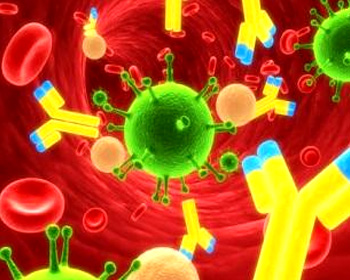 The immune system has developed to protect the host from pathogens and other foreign substances.
Self/non–self discrimination is one of the hallmarks of the immune system. Antibodies are the primary defense against extracellular pathogens.
The immune system has developed to protect the host from pathogens and other foreign substances.
Self/non–self discrimination is one of the hallmarks of the immune system. Antibodies are the primary defense against extracellular pathogens.
An immune system is a collection of mechanisms within an organism that protects against disease by identifying and killing pathogens and tumor cells.
It detects a wide variety of agents, from viruses to parasitic worms, and needs to distinguish them from the organism's own healthy cells and tissues in order to function properly. Detection is complicated as pathogens adapt and evolve new ways to successfully infect the host organism. Several mechanisms evolved to recognize and neutralize pathogens.
Types:
Innate immunity, also called natural immunity is by virtue of genetic constitutional make–up. Acquired /adaptive immunity is the resistance to a disease which an individual acquires during his life–time. It may be the result of a previous infection or due to "ready–made" antibodies provided from outside. For example, a person having once suffered from "measles" will not normally suffer from it again. Immunity is said to be active when an organisms own cells produce antibodies. It develops as a result of contact with pathogenic organisms or their products. Immunity is said to be passive when antibodies produced in another organism are injected into a person to induce protection against diseases. Immunization or vaccination is the process where non–pathogenic form of a microbe elicits an immune response to and immunological memory for that microbe.